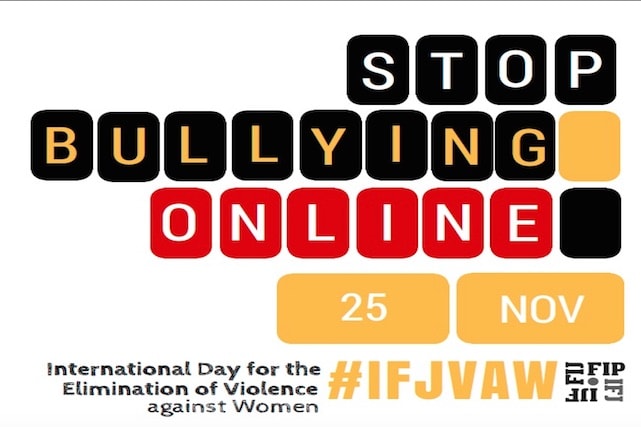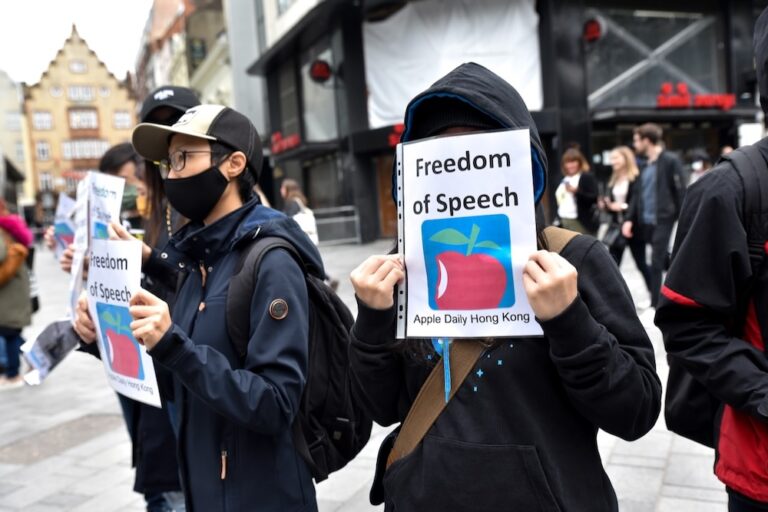Each year, the IFJ Gender Council stands in solidarity with the UN Campaign to Eliminate Violence Against Women on 25 November by highlighting our campaign to eliminate violence against women journalists.
This statement was originally published on ifj.org on 20 November 2015.
Each year, the IFJ Gender Council stands in solidarity with the UN Campaign to Eliminate Violence Against Women on November 25 by highlighting our campaign to eliminate violence against women journalists.
This year we highlight the damaging and rapidly increasing incidents of cyber-bullying and threats, and the ways women journalists are targeted – often for simply being women in the profession.
In every country on the planet where there are media online, there are threats against journalists. In terms of women journalists, resent research has shown that it often takes the form of threats of sexual violence and more often extends to members of their families.
In May of this year, results of a collaborative pilot study by the National Union of Journalists (UK and Ireland) and the University of Strathclyde (Scotland, UK) revealed cases “where reporters have feared for their own personal safety” and referred to “death threats and the need to take additional security precautions”.
While the study did not separate incidences specifically targeting women, it stated that there were “clear cases of sectarian, sexist, racist and homophobic abuse.” One respondent said the abuse was “Persistent, threatening, specific and sinister. Was evident they were monitoring my personal movements.”
While many dismiss the impact of such abuse, or worse, claim it is simply “freedom of speech”, ironically it can inhibit that freedom of speech, and poses a serious threat to a free society through self-censorship, avoidance of specific stories, or avoiding social media in an effort to evade abusers.
While there have been several countries, and unions, that have started taking this form of violence seriously – it is not yet enough. Which is why the IFJ celebrated the launch of the Council of Europe (CoE) online platform to record violations of journalist rights earlier this year. A partnership between the CoE, the IFJ, EFJ, Article 19, Reporters Without Borders and the Association of European Journalists (AEJ), under the Harassment clause – cyber bullying is specifically mentioned.
What can you do?
This year, the Gender Council of the IFJ once again requests journalists, their unions and supporters to express their concerns over violence against women journalists, show their support and to demand an end to impunity by posting on #IFJVAW.
Additionally, the IFJ requests member unions to keep a data base of such cases and report them to the IFJ Gender Council for further action or support.



